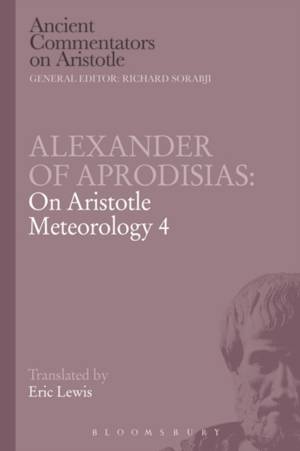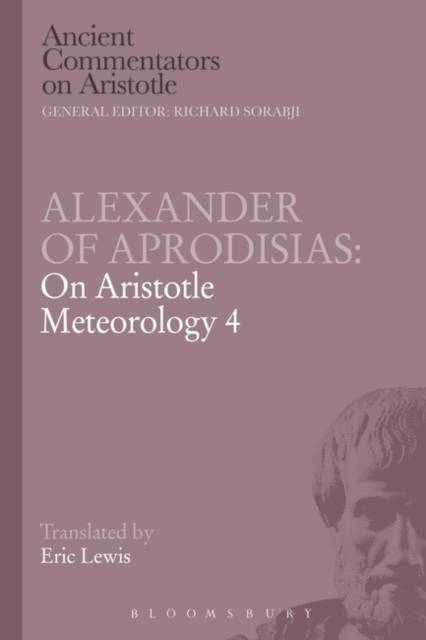
Bedankt voor het vertrouwen het afgelopen jaar! Om jou te bedanken bieden we GRATIS verzending (in België) aan op alles gedurende de hele maand januari.
- Afhalen na 1 uur in een winkel met voorraad
- In januari gratis thuislevering in België
- Ruim aanbod met 7 miljoen producten
Bedankt voor het vertrouwen het afgelopen jaar! Om jou te bedanken bieden we GRATIS verzending (in België) aan op alles gedurende de hele maand januari.
- Afhalen na 1 uur in een winkel met voorraad
- In januari gratis thuislevering in België
- Ruim aanbod met 7 miljoen producten
Zoeken
Omschrijving
Aristotle's Meteorology Book 4 provides an account of the formation of minerals, metals and other homogeneous stuffs. Eric Lewis argues that, in doing so, it offers fresh insight into Aristotle's concept of matter. The four elements (earth, air, fire and water) do have matter, and their matter is the contraries - hot and cold, moist and dry. Lewis further argues that in the text translated here, the only extant ancient commentary on the Meteorology, Alexander of Aphrodisias supports this interpretation of Aristotle. Such a conception of matter complements the account given at an earlier point in the corpus of Aristotle's work in On Generation and Corruption and is confirmed by the account at later points in the biological works, although it adds further detail. Meteorology 4 emerges as an important book. Alexander's commentary is here translated into English for the first time.
Specificaties
Betrokkenen
- Auteur(s):
- Uitgeverij:
Inhoud
- Aantal bladzijden:
- 192
- Taal:
- Engels
- Reeks:
Eigenschappen
- Productcode (EAN):
- 9781472558053
- Verschijningsdatum:
- 10/04/2014
- Uitvoering:
- Paperback
- Formaat:
- Trade paperback (VS)
- Afmetingen:
- 156 mm x 234 mm
- Gewicht:
- 276 g

Alleen bij Standaard Boekhandel
+ 176 punten op je klantenkaart van Standaard Boekhandel
Beoordelingen
We publiceren alleen reviews die voldoen aan de voorwaarden voor reviews. Bekijk onze voorwaarden voor reviews.









